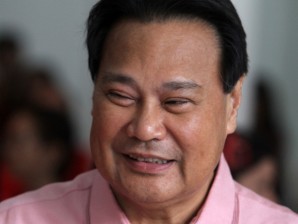Chief Justice Renato Corona can’t have a free ride on the job done by the Philippine Center for Investigative Journalism (PCIJ), and should himself secure the statements of assets, liabilities and net worth (SALN) of government officials.
With this argument, Malou Mangahas and two other PCIJ staff members opposed the request of the defense to summon them to present to the Senate impeachment court the SALNs of 1,500 officials that had been the subject of their special report, among other things.
In an opposition filed with the impeachment court, Mangahas, Karol Anne Ilagan and Ed Lingao asserted that the request of the defense for a subpoena was not only “unreasonable” but also “oppressive.”
Private investigators
The request, they said, attempts to turn the PCIJ staff into private investigators, treats the PCIJ as the official custodian of SALNs, and requires them to bring in a large volume of materials, including some that are not authenticated, and hence irrelevant.
The PCIJ obtained the SALNs from the official custodians, and paid for these, and it might be appropriate for Corona to make a similar request with the custodians “or do what the PCIJ did,” they said.
“Go to the official custodians, make a request, pay the appropriate fees, and after securing the SALNs, do research and analysis,” they said.
“The respondent, or any other party for that matter, should not be allowed to free ride on the efforts, work and journalistic portfolio of the PCIJ and in so doing, make it that party’s private investigator, especially when such can be avoided through a little foresight and some hard work,” they added.
In a special report published earlier this month, the PCIJ reviewed the SALNs of about 1,500 senior elective and appointive officials since 1998, and found that these were “mostly deficient in form and substance.”
The defense panel on Monday filed a motion to subpoena the PCIJ staff to bring to the impeachment court and testify on the SALNs. The prosecution opposed the motion, arguing that the documents were immaterial and irrelevant to the trial. Senate President Juan Ponce Enrile said he would not act on it.
Besides, Mangahas, Ilagan and Lingao pointed out that just because some officials did not fully declare their assets based either on their fair market value, assessed value, or acquisition cost doesn’t make the request right.
They said the request was aimed at disproving any “willful omission of the entries” in Corona’s SALN, and showing good faith “in filling up the same.”
‘Everybody does it’
In legal parlance, this is called the “Everybody Does It” defense, they said, citing the case United States vs Oldbear, in which the Court of Appeals affirmed the conviction of the respondent over her use of Indian tribal funds for the repairs of her vehicle despite her claim that others also used such funds for their personal benefit.
“In the instant case, as in Oldbear, only respondent’s actions and state of mind are material to his guilt,” they said. “The fact that there may have been others who benefited from their improper conduct would do nothing to excuse the respondent. Thus any evidence to establish such defense would be irrelevant and therefore inadmissible.”
